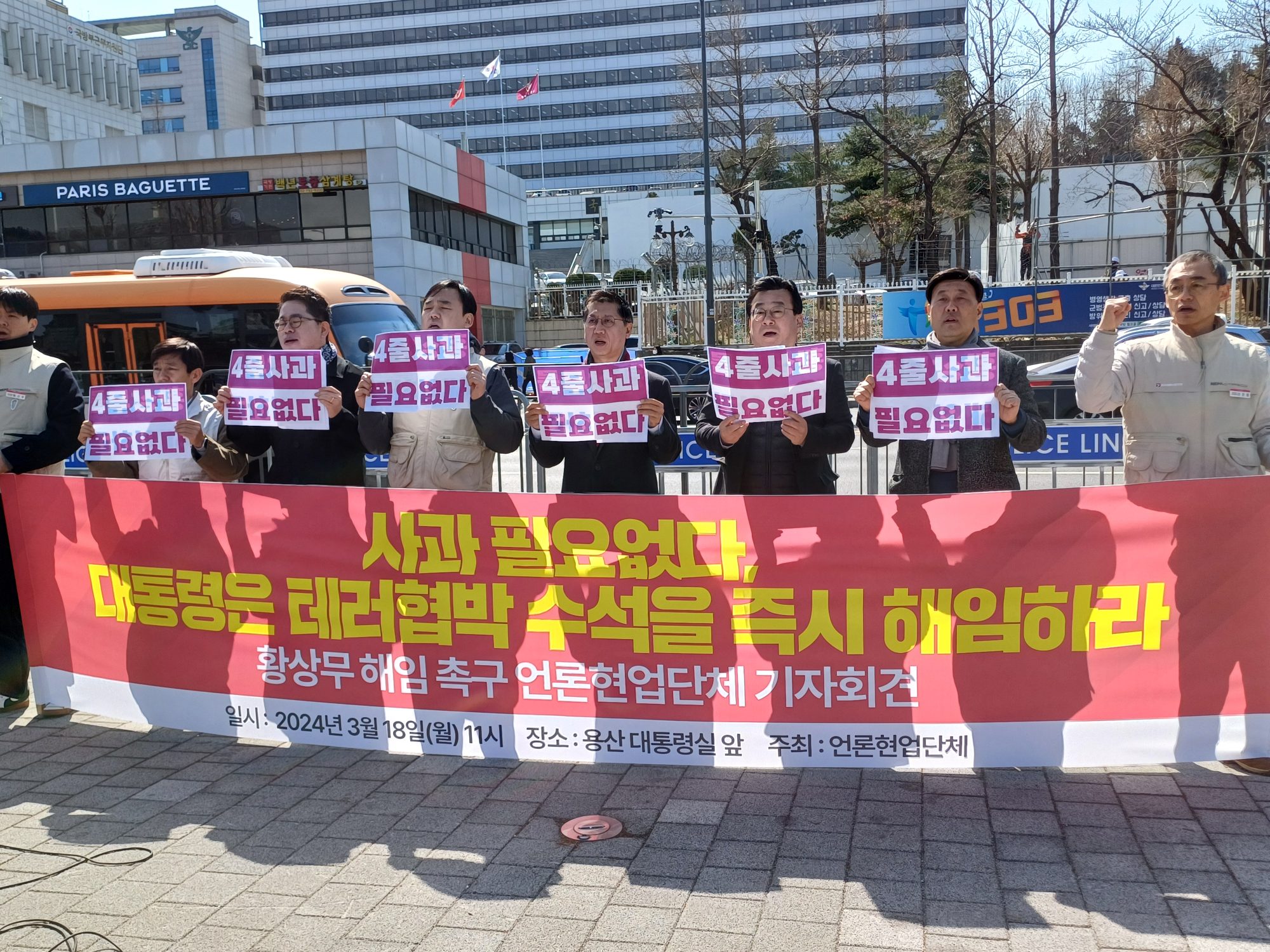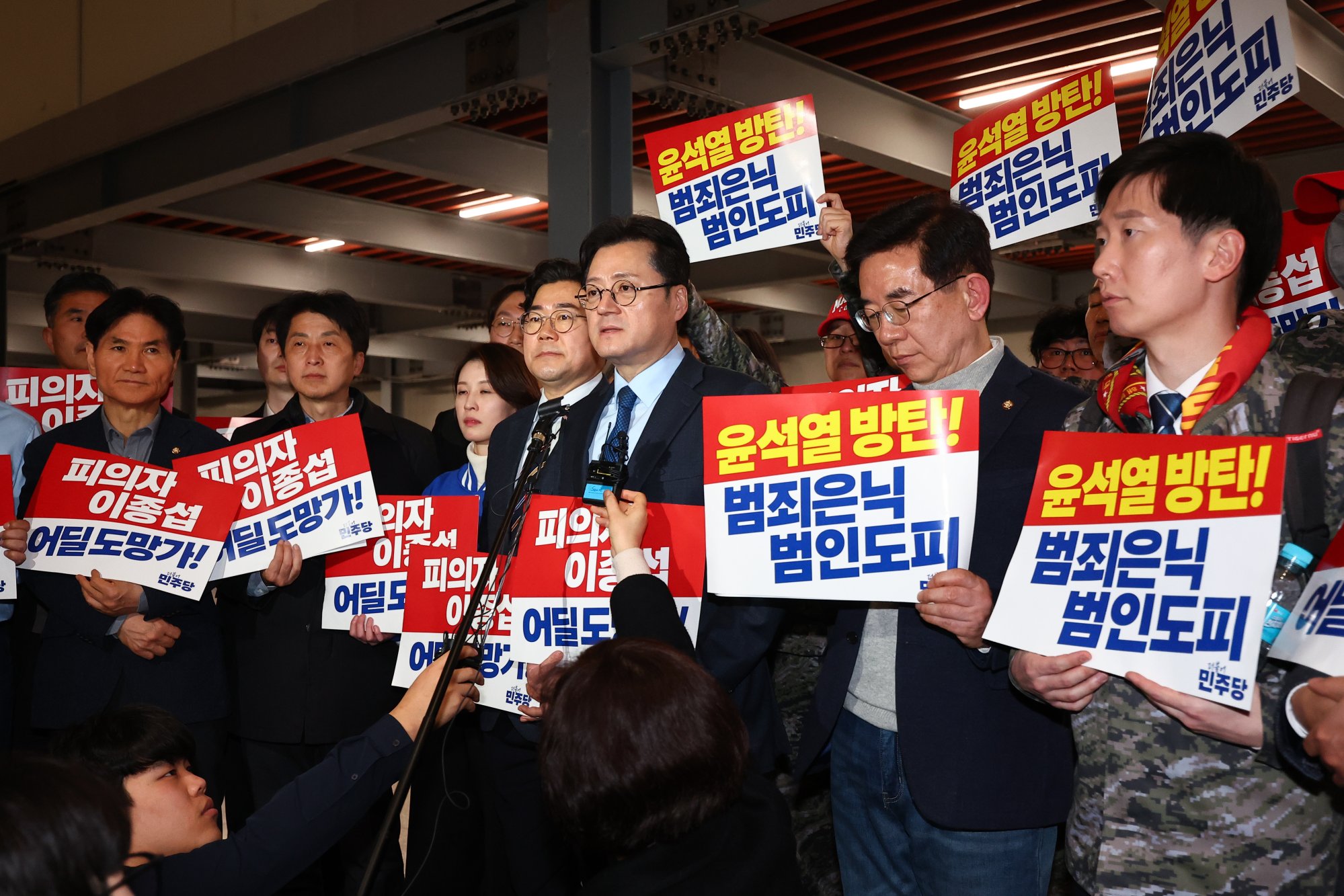
In South Korea, nostalgia for journalist’s stabbing stokes media freedom fears: ‘I felt my hair stand on end’
- Korean media interpreted senior presidential secretary Hwang Sang-moo’s recent reference to Oh Hong-keun’s 1988 stabbing as a veiled threat
- Hwang later apologised, but critics say the incident casts a spotlight on the shrinking space for media dissent under President Yoon Suk-yeol
Hwang Sang-moo, senior presidential secretary for civil and social affairs, made the suggestion last week while dining with journalists assigned to the presidential press corps.
In South Korea, rising US-style partisan hatred fuels fears of further violence
But Yoon’s presidential office insists his government “thoroughly” respects press freedom and the news media’s role in a functioning democracy, asserting that it never uses pressure tactics against any journalists.
“You MBC, listen to me carefully”, Hwang said on Thursday last week in reference to one of South Korea’s leading broadcasters, which has been at odds with the government due to “biased” and antagonistic news reporting.
The presidential secretary reminisced about how a journalist who wrote a magazine column in 1988 criticising the country’s lingering militarist culture was stabbed by three military intelligence agents in what became known as the “sashimi knife terror attack”.
Hwang said the victim, Oh Hong-keun, brought trouble down upon himself by writing articles that were critical of the government, hinting that journalists who criticise Yoon’s government could meet the same fate.
Oh, then city desk editor of the now-defunct JoongAng Economic Daily, was stabbed twice in the thigh near his home on his way to work one morning.

His assailants, and a brigade general who ordered the attack, were subsequently arrested – but received little more than a slap on the wrist from a military court under Roh Tae-woo, the general-turned-president.
In the face of mounting protests from the media, Hwang, a former reporter with state-funded KBS, on Saturday apologised for his insensitivity. He promised to be more careful with his words and actions in future and behave more responsibly as a senior presidential aide.
But journalists called Hwang’s “outrageous remarks” far from an one-off faux pas, saying they represented a snapshot of how those in power in South Korea want to silence critics.
“This government has come to the point where they can openly make terrorist threats to journalists. It’s so outrageous”, National Union of Media Workers head Yoon Chang-hyeon told This Week in Asia.
When I heard what Hwang said to journalists, I felt my hair stand on end
Representatives from the country’s six major journalists’ unions rallied near the presidential office on Monday, waving banners and chanting slogans calling for President Yoon to apologise and sack Hwang immediately.
“When I heard what Hwang said to journalists, I felt my hair stand on end,” Rha Jun-young, head of Korea Video Journalists Association, said as the rally was wrapping up.
Some two decades ago, Rha said he was poked in the eye with a stick by an unidentified assailant as he was filming in the street, a trauma that still haunts him to this day.
“Whenever I take to the street to film, I am concerned some bad things could happen to me and Hwang’s remarks have made me all the more nervous” said Rha, who works for MBC.
In South Korea, history and free speech collide in democracy battle
Unlike much of the pro-conservative Korean media, MBC has served as a rare dissenting voice against Yoon’s administration, said Kim Seo-joong, a media professor at Sungkonghoe University in Seoul.
“Hwang’s thinly-veiled threat against dissenting journalists reflects not only his distorted perception towards news media, but the growing animosity towards them which is widely shared by the presidential office”, Kim told This Week in Asia.
MBC reporters were later banned from the media corps who are allowed on board the presidential plane when Yoon travels overseas, and a reporter involved in the story had her home raided – though authorities said this related to a different story.

Lee’s appointment as ambassador has been widely seen as a government bid to help him escape justice, with the perceived scandal causing Yoon’s approval ratings to plummet ahead of the crucial April 10 parliamentary elections.
Last month, state communications watchdog the Korea Communications Standards Commission issued an administrative warning to broadcaster SBS after an opposition lawmaker referred to first lady Kim Keon-hee without the usual honorifics during one of its news programmes.
Kim Young-bae had called for a “special probe into Kim Keon-hee” over her alleged corruption, and the commission held the news programme responsible for failing to stop him from referring to her without honorifics.
South Korea’s ‘fake news’ clampdown has ‘chilling effect’ on free press: critics
Critics have accused the government of seeking to silence unfriendly news media by labelling critical reports as “fake”.
Prosecutors raided broadcaster JTBC and online news outlet Newstapa in September as part of an investigation into “fake news” suggesting the president had helped cover up a crime in 2011 during his tenure as a prosecutor.
Several journalists were charged with defamation, amid allegations they had reported falsehoods with the intent to discredit Yoon while he was a presidential candidate.
South Korea ranked 47th among 179 countries in terms of democracy, down from 28th a year earlier, the Varieties of Democracy Institute said in its report.

